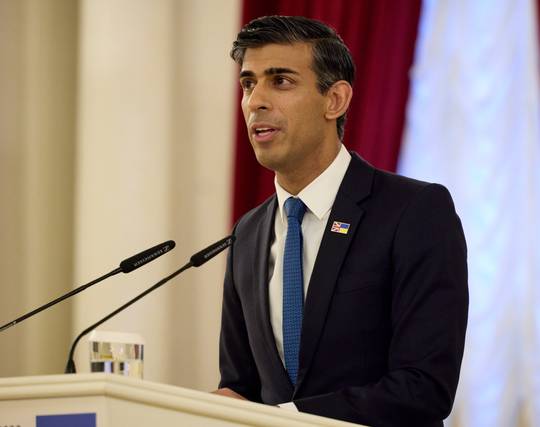On paper Sunak (1980- ) was admirably qualified for the job of prime minister. Of well-off but not wealthy Indian parents (his father was an NHS doctor), Sunak gained a first-class degree in economics from Lincoln College, Oxford, followed by an MBA from Stanford University, during which period he married a wealthy daughter of the founder of the huge Indian software company Infosys. He then worked briefly for Goldman Sachs, followed by a hedge fund in California, before becoming MP for Richmond (Yorks.) in the 2015 general election.
Sunak’s rise was swift, as often happens to people with an apparently stellar resume and an inoffensive personality. He became Chief Secretary to the Treasury in 2019 and succeeded as Chancellor of the Exchequer in February 2020, in one of the pointless reshuffles that bedevil modern politics – at that stage he was thought to be a Boris Johnson loyalist. As Chancellor of the Exchequer, he greeted the Covid-19 virus by spraying around a mass of subsidies to affected people and industries, which blew out Britain’s budget deficit and produced record amounts of fraud, while imposing a “windfall” tax on energy producers that left Britain vulnerable once the Ukraine war broke out.
By July 2022 Sunak was growing bored with service under Johnson, and felt he had majority support from the Conservative parliamentary party, which contains a high proportion of metropolitan careerist MPs with vaguely socialist, environmentalist attitudes, these being preferred by the candidate selection process organized by Conservative Campaign Headquarters (formerly Conservative Central Office). Accordingly, he staged a walk-out of Johnson’s Cabinet, even though Johnson had been re-elected Party leader only two months before. Much to Sunak’s chagrin, despite his popularity with the parliamentary party, the Conservative Party membership, not infected by CCHQ’s metropolitan socialism, elected Truss over Sunak by a substantial majority. A second coup against Truss, with the help of Bank of England Governor Andrew Bailey (1959- ), took only a few weeks to arrange, a further “election” for leader was stitched up to avoid the Party members, and Sunak became Prime Minister, the youngest since Liverpool, after a process that might have met the approval of Benjamin Disraeli, but of few of his other predecessors.
As prime minister, Sunak pleased the permanent bureaucracy, but few others – his lack of support for his competent Deputy Dominic Raab (1974- ), forced to resign after “bullying” allegations, subordinated the elected government yet further to the bureaucratic Blob. He raised taxes sharply, while refusing to cut spending even on such obvious wastes of money as the HS2 train project. He continued Johnson’s economically damaging “net zero” climate change policy, banning fracking once more, as well as his Ukraine interventionism, despite the costs of both becoming increasingly obvious.
Sunak’s “Windsor Framework” over Northern Ireland failed to solve the problems of Theresa May’s botched Brexit agreement; it showed Sunak’s overall approach of punting problems down the road rather than solving them. Like his predecessors, he failed to lower Britain’s grossly excessive rates of legal and illegal immigration. The economic failure and general impoverishment that is increasingly apparent is blamed on “Brexit” and may well lead to that freedom-creating policy’s reversal in due course. In reality, it has several causes: a GOSPLAN low interest rates monetary policy for over a decade, excessive wage-crushing low-skill immigration and the enormous excess costs of the “net zero” madness being the three greatest.
Sunak’s problem may be that Oxford and Stanford had already been taken over by “wokeism” when he attended; certainly those institutions would have given him more useful qualifications 50 years ago. When given a binary decision, he generally takes the wrong fork, a fault of those who prioritize paperwork over results. One way or another, he is unlikely to last long; to do so, he would need to find some additional resources of ideas and capabilities, currently well hidden.
